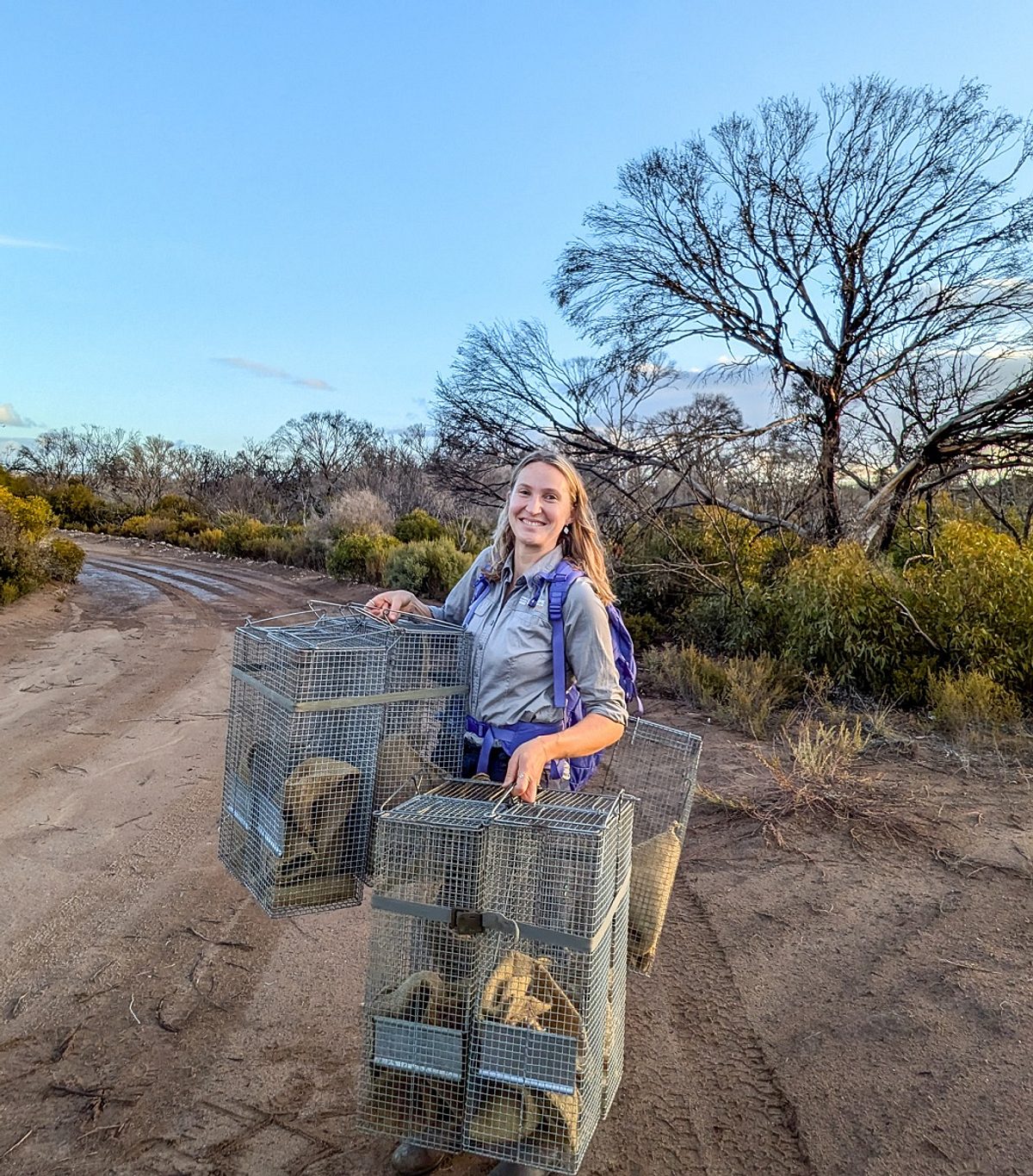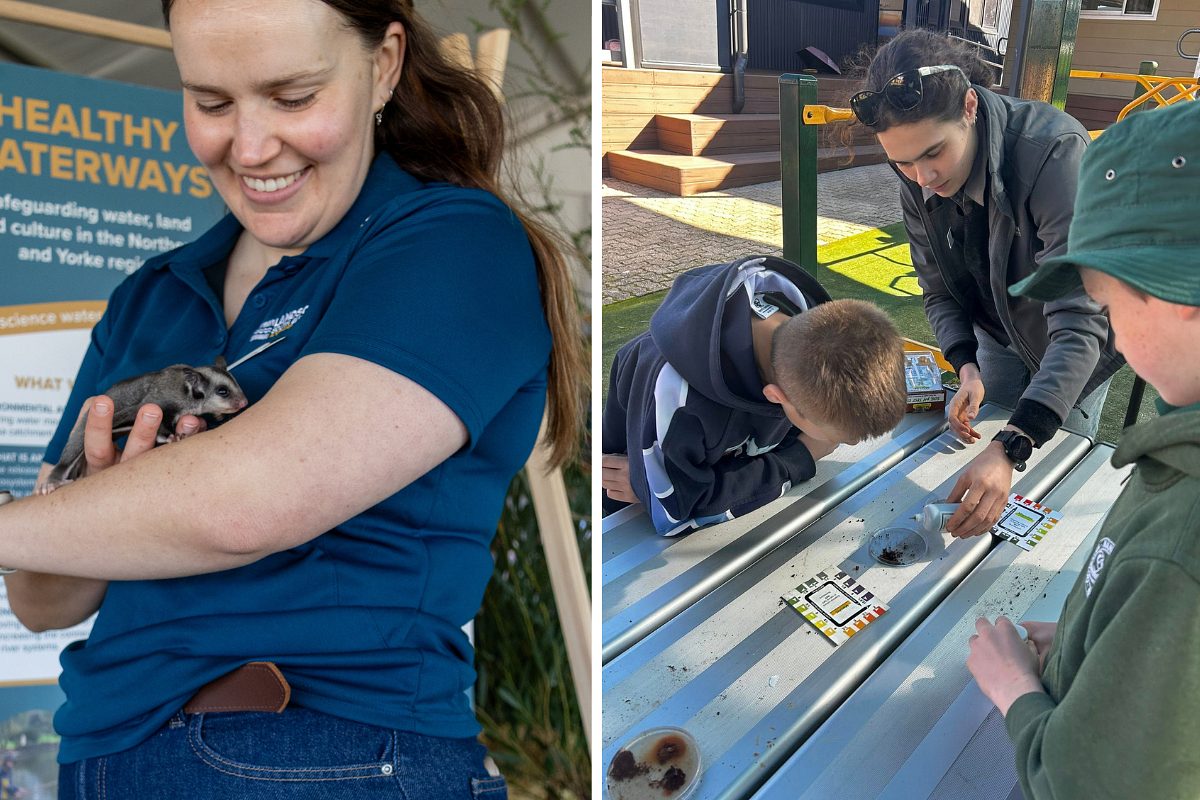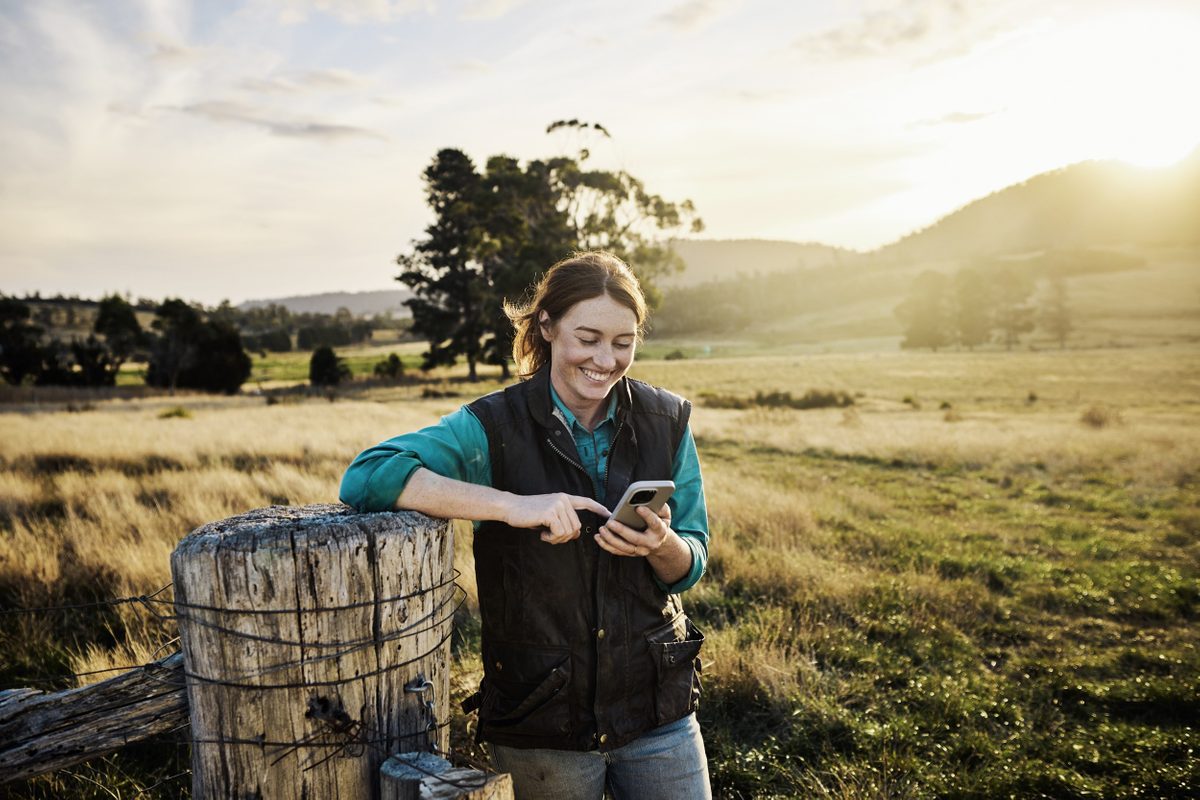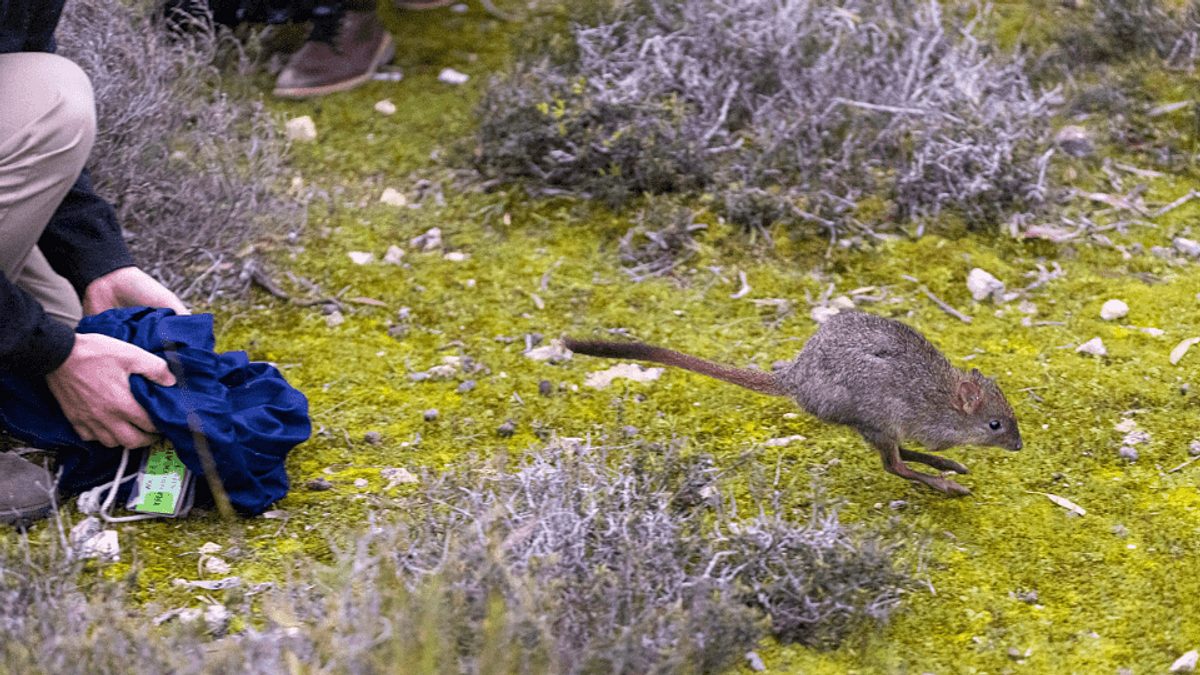Bettongs holding strong on southern Yorke Peninsula despite drought
Despite months of drought conditions, brush-tailed bettongs (yalgiri) reintroduced to southern Yorke Peninsula are not just surviving, they’re reproducing.
A recent health check by ecologists found all captured females were carrying young, a promising sign of resilience in tough circumstances.
In late May, the Northern and Yorke Landscape Board’s Marna Banggara team led a targeted welfare check to assess the condition of yalgiri living in Dhilba Guuranda-Innes National Park.
Marna Banggara, a rewilding Yorke Peninsula project, is jointly funded by the Australian Government Natural Heritage Trust and the Northern and Yorke Landscape Board, a member of the Commonwealth Regional Delivery Partners panel.

The trapping event aimed to understand how these small marsupials are faring following a particularly hot and dry period that could impact food availability and overall wellbeing.
Over three nights of trapping, the team captured 22 individual yalgiri - seven females and 15 males. Each animal was weighed, measured, and given a ‘body condition’ score to assess health and detect any signs of stress.
“There are some positive signs,” said Claire Hartvigsen-Power, Marna Banggara’s ecologist. “All of the females captured were carrying pouch young, which shows that they’re healthy enough to reproduce, even in tough environmental conditions.”
Weight data also provided encouraging news. More than half of the animals had gained weight since their last capture in October 2024. For those that had lost weight, the decrease was less than 10%, which falls within normal seasonal fluctuation ranges.
“While it was a small sample, the yalgiri appeared to be in good health which suggests they’re coping well,” said Claire.

Capture rates were high, and the team continues to see new individuals - those born in the park - providing strong evidence of successful breeding and dispersal. The monitoring also revealed continued digging activity, showing that the yalgiri are actively foraging and playing their part as a soil engineer.
The trapping is part of the broader Marna Banggara project, which is restoring lost species and ecological function to southern Yorke Peninsula. The reintroduction of more than 190 yalgiri between 2021 and 2023 marked a historic return of the species after more than a century of absence.
During last year’s annual monitoring event 83 yalgi were captured and of them 31 were new animals born on Yorke Peninsula and 88% of females were carrying pouch young.
The Marna Banggara project receives strong support from the Narungga Nation Aboriginal Corporation, environmental organisations, rangers, volunteers and landholders.
A small team was part of the latest monitoring effort, including staff from the Northern and Yorke Landscape Board and park rangers from Dhilba Guuranda–Innes National Park.
For more information about the Marna Banggara project, visit www.marnabanggara.com.au.


